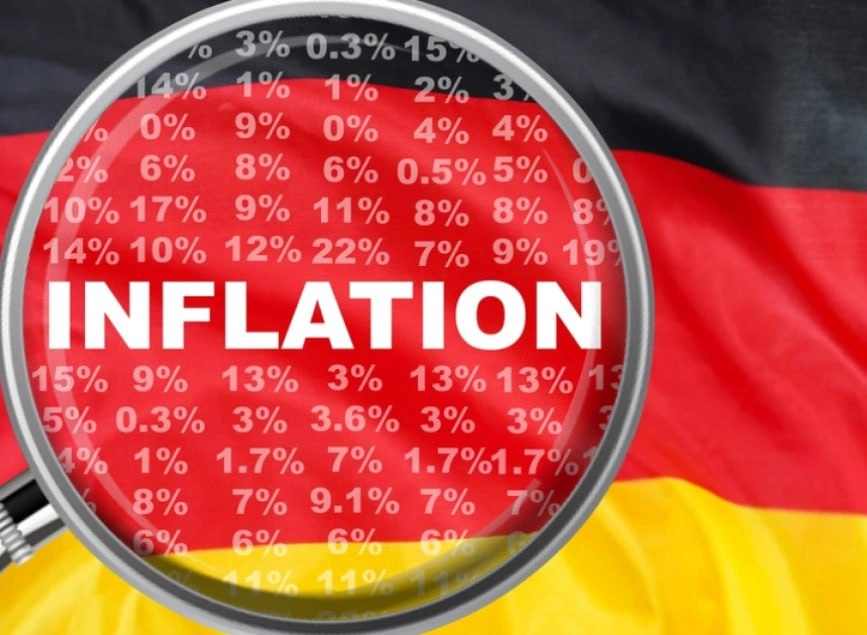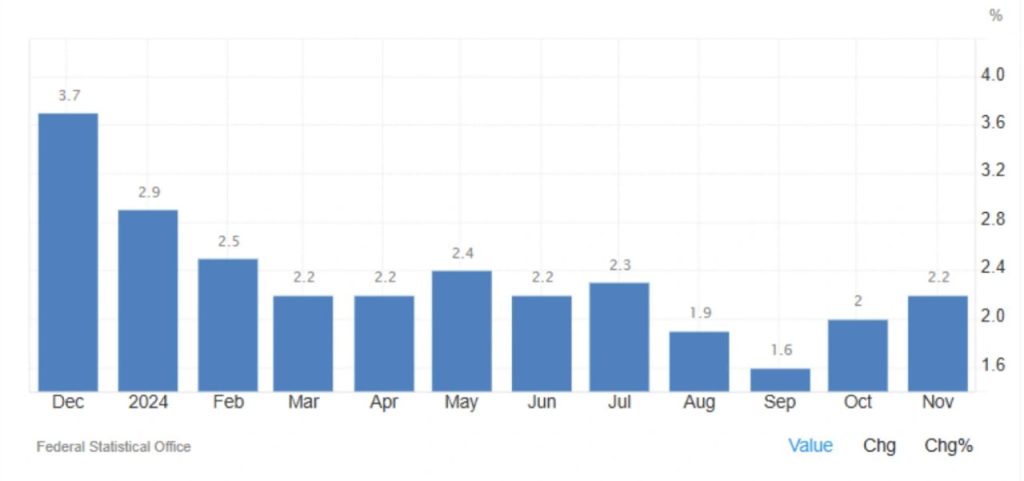
Germany’s Inflation Rate Rises in November 2024
Germany’s annual inflation rate increased to 2.2% in November 2024, up from 2% in October, in line with preliminary estimates, marking the highest level in four months. This uptick reflects broader inflationary pressures across various sectors, with services inflation holding steady at 4%, while energy costs declined at a slower pace (-3.7% vs -5.5% in October). The moderation in energy costs is a key factor contributing to the overall inflation dynamics, though food inflation also showed signs of slowing, decreasing to 1.8% from 2.3% in the previous month. Despite these variations, the uptick in the annual inflation rate is consistent with the ongoing adjustments in global commodity prices and the post-pandemic recovery.

Slower Monthly Decline in Consumer Prices
On a monthly basis, consumer prices fell by 0.2% in November, matching initial estimates and following a 0.4% rise in October. This decline reflects seasonal adjustments and lower demand for certain goods and services. The slower monthly decline suggests some resilience in consumer spending despite higher inflation pressures. Core inflation, which excludes volatile food and energy prices, reached a six-month high of 3% in November. This indicates persistent underlying inflationary pressures in the German economy, even as overall headline inflation shows signs of easing. The persistence of core inflation underscores the ongoing challenge of managing inflation without stifling economic growth.
EU-Harmonised Inflation Rate and Market Expectations
The EU-harmonised inflation rate remained steady at 2.4% annually, confirming initial estimates for November. Month-on-month, harmonised consumer prices declined by 0.7%, in line with preliminary data, reversing a 0.4% increase from the previous month. This consistency between the headline inflation rate and the EU-harmonised index indicates a stable inflation environment within the Eurozone framework, despite localized price pressures in Germany. The alignment with preliminary estimates provides a clearer picture for policymakers regarding the effectiveness of monetary and fiscal policies in controlling inflation while promoting economic stability.
Outlook for Germany’s Inflation and Economic Stability
Looking forward, the German inflation outlook appears cautiously optimistic. The moderation in energy costs and slower food inflation may contribute to a more stable inflation environment in the near term. However, core inflation remaining at a six-month high suggests that the underlying pressures from higher wages and persistent demand for services could sustain inflationary trends. Policymakers will likely continue to monitor these developments closely, with the European Central Bank’s (ECB) monetary policy being a crucial factor in managing inflation expectations across the Eurozone. For Germany, managing inflation without derailing economic recovery will be key to maintaining both consumer and business confidence in the coming months.
Share
Hot topics

Best broker for gold trading
There’s always been a certain magic about gold. Before online charts and trading applications, people stored their wealth in coins and bars, trusting that gold would retain its value during...
Read more




Submit comment
Your email address will not be published. Required fields are marked *